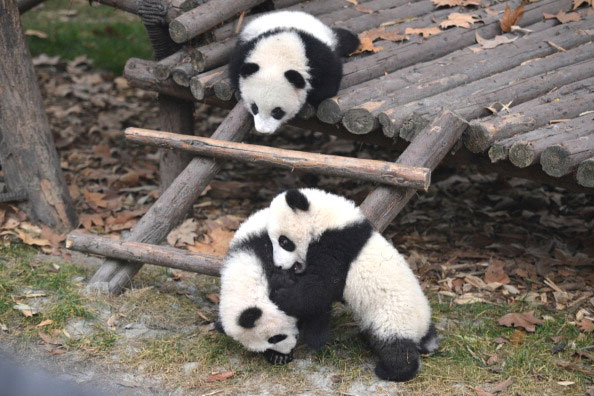With so many species of animals expected to go extinct over the next century, the Chinese government has been invested in preserving the habitat of panda bears, their country’s national symbol.
The belief that pandas can live only in a specific habitat has informed preservation policies in China.
Specifically, conservationists believed that pandas required level terrains at a specific elevation while living away from humans.
Currently, the 1,600 remaining wild pandas live in a large protected area in China thought to be the only area they can survive.
The existing beliefs about pandas are not based on thorough research, according to Vanessa Hull, a postdoctoral research associate at MSU’s Center for Systems Integration and Sustainability
“Pandas are difficult to observe and follow in the wild, we’re always 10 steps behind them,” Hull added. “We don’t know why they’re there or where they were before and after. There’s a lot of guesswork.”
In a new study, researchers at Michigan State University have found that panda bears are more adaptable to change and flexible with their habitat than previously believed, reports Science Daily.
For the study, the researchers performed a literature review on the panda’s habitat and discovered that experts had conflicting theories about the topic.
After analyzing the existing studies, the researchers found that pandas were content living in forests that were previously logged and had trees replanted. They also found that pandas are willing to climb slopes to obtain bamboo.
“Panda habitat selection is a complex process that we are still trying to unravel,” said Jack Liu, the director of MSU’s department of Systems Integration and Sustainability. “Pandas are a part of coupled human and natural systems where humans have changed so much in their habitat.”
“It’s exciting to see the flexibility pandas have, or at least see that pandas are choosing areas I didn’t think could support them,” Hull said. “It gives you hope. They’ve survived throughout many challenges over so many millions of years. It would be sad to think humans came along and threw it all away. This also suggests we should stay on board and try to make things better for them.”
The research was published in Ursus, the journal of the International Association for Bear Research and Management.

